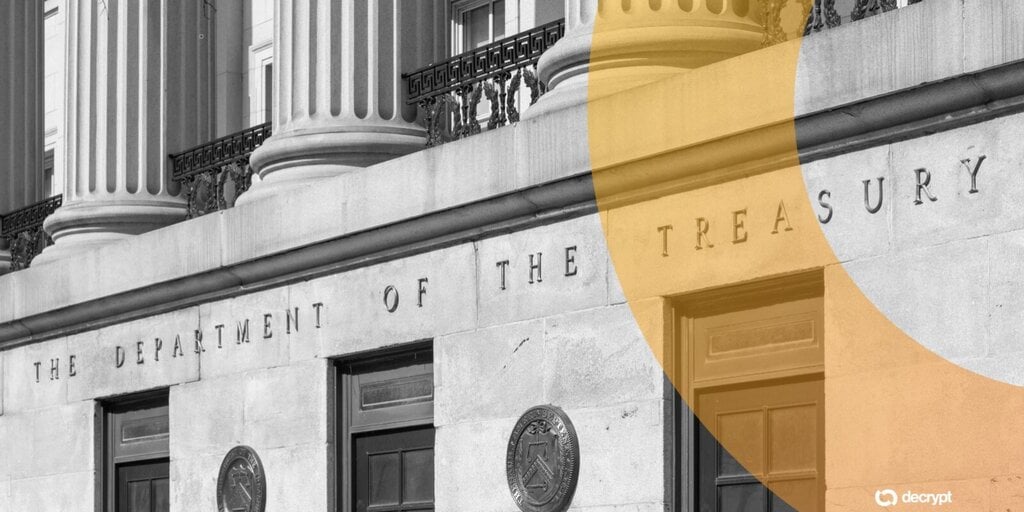Are OFAC Sanctions Targeting Iranians for $100M in Illicit Crypto Oil Sales?

Published: 2025-09-17 11:09:37 | Category: politics diplomacy GNEWS Search
The U.S. Treasury Department has recently imposed sanctions on Iranian nationals and several companies based in Hong Kong and the United Arab Emirates (UAE) for allegedly facilitating illicit oil sales to Iran's Islamic Revolutionary Guard Corps-Quds Force (IRGC-QF) and the Ministry of Defense and Armed Forces Logistics (MODAFL). This action is part of a broader effort to dismantle Iran's shadow banking system, which reportedly launders vast sums through front companies and cryptocurrency exchanges.
Last updated: 14 October 2023 (BST)
Key Takeaways
- The U.S. Treasury has sanctioned two Iranian nationals and multiple firms in Hong Kong and the UAE.
- These sanctions are aimed at disrupting over $100 million in cryptocurrency linked to Iranian oil sales.
- The network is associated with Hezbollah and previously sanctioned entities.
- Shadow banking and cryptocurrency are central to Iran's sanctions-evasion tactics.
- These measures are part of a larger campaign to curb Iran's financial flows supporting weapons development.
The Nature of the Sanctions
On Tuesday, the Treasury's Office of Foreign Assets Control (OFAC) announced the sanctions targeting Alireza Derakhshan and Arash Estaki Alivand, who have been identified as key figures in the movement of significant cryptocurrency flows tied to Iranian oil sales since 2023. The sanctions also encompass multiple shell companies, including Alpa Trading in Dubai and Alpa Hong Kong Limited, which were allegedly used to disguise these financial activities.
Understanding Shadow Banking in Iran
Shadow banking refers to financial activities that occur outside the traditional banking system, often circumventing regulatory oversight. In the case of Iran, officials claim that these networks have successfully laundered billions of dollars, enabling the regime to fund its military and other malign activities despite existing sanctions.
John K. Hurley, the undersecretary of the Treasury for Terrorism and Financial Intelligence, noted that Iranian entities heavily rely on these networks to evade sanctions. The U.S. aims to disrupt these financial streams to hinder Iran's weapons programmes and destabilising influence in the Middle East.
Recent Developments and Broader Context
This latest round of sanctions follows a series of measures imposed by the U.S. in early September, which targeted Iranian-linked oil tankers and resulted in the Israeli government blacklisting 187 cryptocurrency wallets associated with the IRGC. The sanctions have increased in frequency and intensity over the summer, underscoring Washington's commitment to applying maximum financial pressure on Iran.
By targeting shadow bankers, cryptocurrency brokers, and overseas shell companies, the U.S. seeks to dismantle the financial infrastructure that allows the IRGC and MODAFL to operate despite sanctions. This indicates a strategic shift in how sanctions are applied, especially concerning the use of digital currencies and blockchain technology.
The Role of Cryptocurrency in Sanctions Evasion
Angela Ang, the APAC head of policy and strategic partnerships at TRM Labs, highlighted the growing importance of blockchain technology in Iran's sanctions-evasion strategies. She pointed out that Iran's procurement networks are increasingly relying on cryptocurrency as a means of transferring value quickly and discreetly across borders. This is particularly relevant in situations where traditional banking channels might flag or reject suspicious transactions.
By explicitly targeting cryptocurrency activities, the U.S. is sending a clear message: digital assets are now a focal point for sanctions enforcement. This approach illustrates how deeply embedded digital currencies have become in Iran's tactics for circumventing restrictions.
Patterns in Iran's Financial Operations
The U.S. Treasury has identified familiar patterns in how Iran utilises cryptocurrency to facilitate its financial operations. This includes converting fiat currency into stablecoins, such as USDT or TRX, moving value through multiple intermediary wallets to obscure the transaction trail, and ultimately off-ramping funds through exchanges with weak compliance oversight.
The IRGC-QF was first designated by the U.S. as a terrorist organisation in 2007, with its parent body, the IRGC, being blacklisted in 2017. The MODAFL, which is responsible for overseeing weapons development, was sanctioned in 2019. These designations reflect the longstanding concerns regarding Iran's military ambitions and its support for terrorist groups.
What Happens Next?
As the U.S. continues to impose sanctions, it may lead to further isolation of Iran's financial networks. The increasing focus on cryptocurrency indicates that future sanctions may target digital assets more aggressively, potentially complicating Iran's efforts to conduct international trade and finance its military ambitions.
Moreover, these sanctions might provoke Iran to adapt its financial strategies, potentially leading to new methods of evasion or the development of alternative channels for international trade. The situation remains fluid, and observers will likely monitor the effectiveness of these measures in altering Iran's economic behaviours and military funding.
Implications for International Relations
The sanctions announced by the U.S. may have broader implications for international relations, particularly in the context of Iran's alliances with countries like Russia and China. As the U.S. seeks to cut off Iran's access to financial resources, it may inadvertently push Iran closer to nations willing to defy Western sanctions.
These developments could raise tensions in the Middle East, particularly if Iran perceives the sanctions as an existential threat. The geopolitical ramifications could extend beyond the region, impacting global oil markets and international security dynamics.
FAQs
What are the recent sanctions imposed by the U.S. on Iran?
The U.S. has imposed sanctions on two Iranian nationals and several companies in Hong Kong and the UAE, targeting their involvement in laundering money from illicit oil sales to Iran’s military forces.
Why is the U.S. targeting cryptocurrency in its sanctions?
The U.S. is targeting cryptocurrency because it has become a significant tool for Iran to evade sanctions, allowing for discreet and rapid financial transactions across borders.
What is the role of the IRGC-QF in Iran?
The IRGC-QF is responsible for supporting terrorist organisations and overseeing military operations. It has been designated a terrorist entity by the U.S. since 2007.
How do sanctions impact Iran's economy?
Sanctions significantly restrict Iran's access to international financial systems, limiting its ability to trade and access foreign currency, which can lead to economic instability.
What is shadow banking?
Shadow banking refers to financial activities that occur outside traditional banking regulations, often enabling entities to evade oversight and engage in illicit financial activities.
As the U.S. intensifies its sanctions on Iran, observers will be keen to see how these measures impact the country's financial networks and geopolitical relationships. The evolving landscape of sanctions and the role of cryptocurrency will remain critical areas of focus. #Sanctions #Iran #Cryptocurrency



